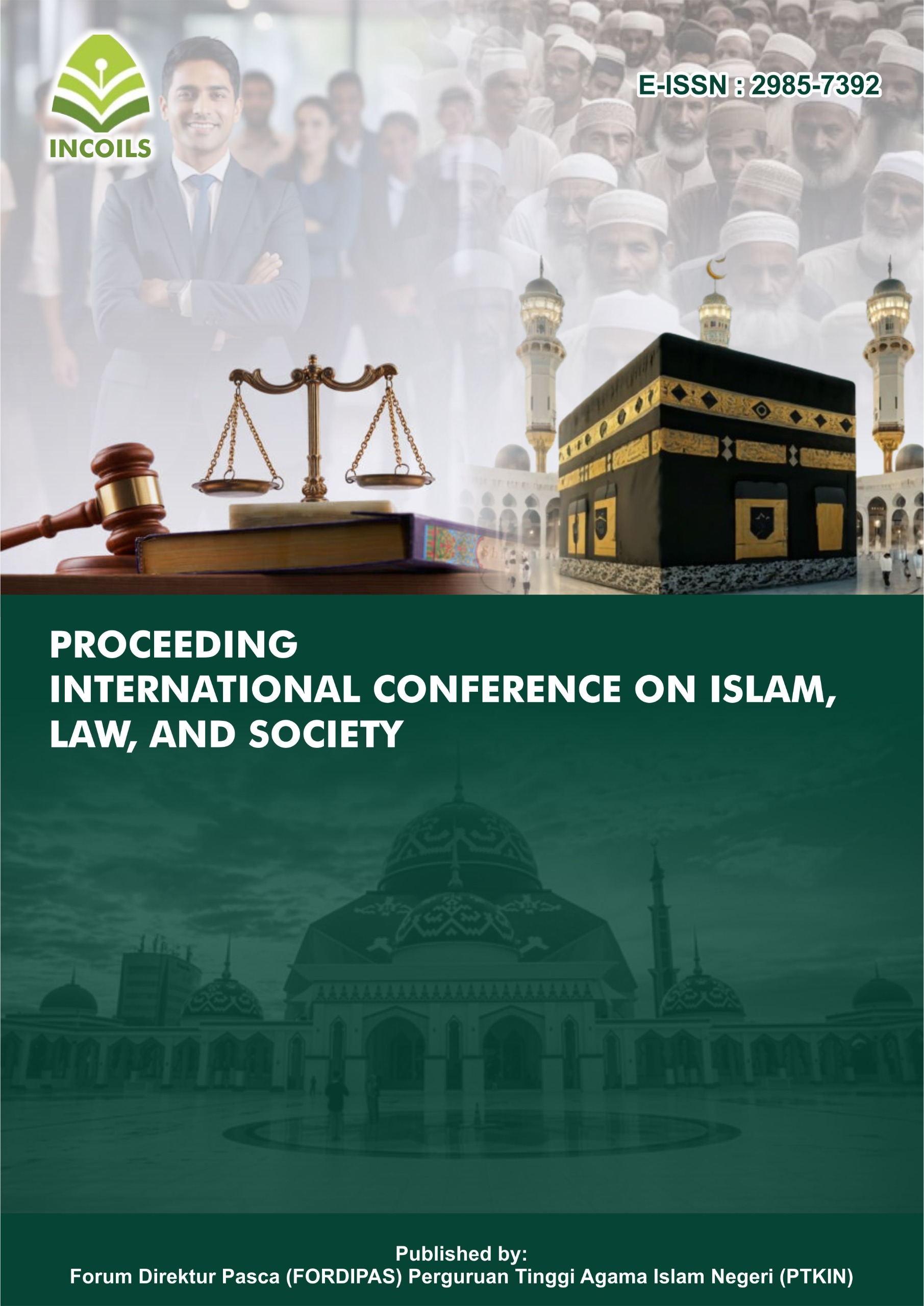Student’s Ability in Solving Mathematical Problems Based on Wankat-Oreovocz Theory Reviewed from Mathematical Logical Intelligence
DOI:
https://doi.org/10.70062/incoils.v2i1.108Keywords:
Logical Intelligence, Problem Solving, Wankat-Oreovocz TheoryAbstract
Education is an important need for every human being. This is necessary so that students can develop their potential. To achieve this, students are expected to have the ability to solve problems. There are several problem solving theories developed by several experts. One theory of problem solving is based on the Wankat-Oreovocz theory. In this study problem-solving abilities will be assessed based on students' logical-mathematical intelligence in working on trigonometry problems. This study used a qualitative approach with the type of case study research conducted at MA Ma'aarif Udanawu Blitar with research subjects in class X. From 42 students, 6 students were selected as research subjects classified based on different levels of logical-mathematical intelligence. The data in this study will be obtained using written tests and documentation. Then the data will be analyzed through the stages of data collection, data reduction, data presentation, and conclusions. The research results obtained were students with high logical-mathematical intelligence were able to solve problems according to the sequence of steps of the Wankat-Oreovocz theory, students with moderate logical-mathematical intelligence were able to fulfill the six indicators of the Wankat-Oreovocz theory even though they were not optimal, while students with low logical-mathematical intelligence Have confidence and motivation to solve problems.
References
Astuti, A. G. (2015). KEMAMPUAN BERPIKIR LOGIS BERTIPE KECERDASAN LOGIS MATEMATIS TERKAIT DENGAN KONSERVASI BAGI ANAK BERUSIA 7-8 TAHUN. Jurnal Horizon Pendidikan.
Darmadi, H. (2019). Pengantar Pendidikan Era Globalisasi: Konsep Dasar, Teori, Strategi dan Implementasi dalam Pendidikan Globalisasi.
Dumilah, R. (2013). Pengaruh Kecerdasan Logis Matematis dan Kecerdasan Linguistik Terhadap Kemampuan Menyelesaikan Soal Cerita Pokok Bahasan Bidang Datar.
Faizah, F. (2017). Proses Berpikir Siswa Kelas VII E dalam Memecahkan Masalah Matematika pada Materi Pecahan Ditinjau dari Kecerdasan Logis-Matematis. Jurnal Pendidikan Matematika dan Matematika Solusi, 22.
Hasanah, Wardatul, & Siswono, T. Y. (2013). Kecerdasan Logis Matematis Siswa dalam Memecahkan Masalah Matematika pada Materi Komposisi Fungsi. Jurusan Matematika, MIPA Universitas Surabaya.
Masykur, Moch, & Fathani, A. H. (2008). Mathematical Intelegence Cara Cerdas Melatih Otak dan Menanggulangi Kesulitan Belajar. Yogyakarta: Ar-Ruzz Media.
Meita Sari, D. S., Adna, S. F., & D. M. (2020). Analisis Kemampuan Pemecahan Masalah Berdasarkan Teori Wankat dan Oreovocz. Jurnal Pendidikan Matematika Undiksha.
N. H., R. M., & S. A. (2022). Meningkatkan Kemampuan Pemecahan Masalah dan Kecerdasan Logis Matematis dengan Model Pembelajaran Polya. SENTRI: Jurnal Riset Ilmiah, 642-651.
Prayogi, & Kusuma, A. B. (2019). Pengaruh Self Confident Terhadap Kecerdasan Matematik Siswa. Prosiding Sendika.
Umami, Choirotul, Mustangin, & Walida, S. E. (2021). Profil Kemampuan Literasi Matematis Siswa dalam Menyelesaikan Soal PISA Ditinjau dari Kecerdasan Logis-Matematis. Jurnal Penelitian, Pendidikan, dan Pembelajaran.
Uyun, M., & I. W. (2021). Psikolopgi Pendidikan. Yogyakarta.
Downloads
Published
How to Cite
Issue
Section
License

This work is licensed under a Creative Commons Attribution-ShareAlike 4.0 International License.







